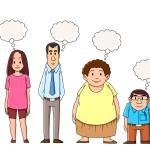The Problem – “Past performance is not a guarantee of future results.”
climate change
Join host Cameron English as he sits down Dr. Chuck Dinerstein to break down these stories on episode 32 of the Science Dispatch podcast:
ChatGPT is an AI model of language trained to produce text. It was trained on materials written by humans found on the Internet.
Mara’s commentary steered clear of a discussion of gender (women tend to be smaller than men); lifespan; BMI, or activity on climate change, even though our ability to affect BMI or activity level is much greater than our influence on height, gend
There is no shortage of bad news in media headlines.
Public trust in media is near an all-time low.
Almost three decades ago, activist groups began making all sorts of troubling predictions about the dangers of growing genetically engineered (GE) crops.
If you want to win an argument, you can employ one of two strategies: make compelling arguments that convince your audience, or engage in personal attacks designed to disqualify your opponents.












